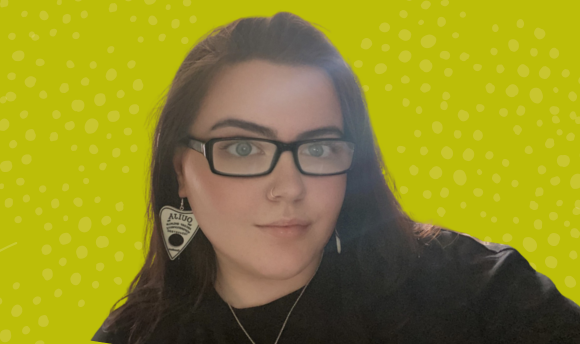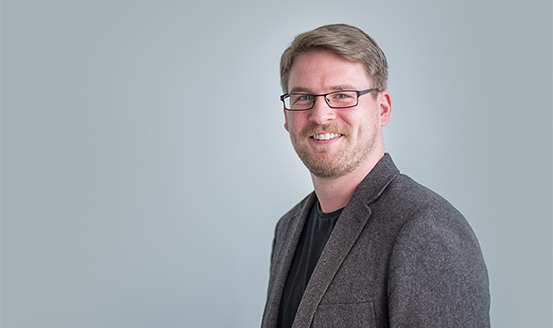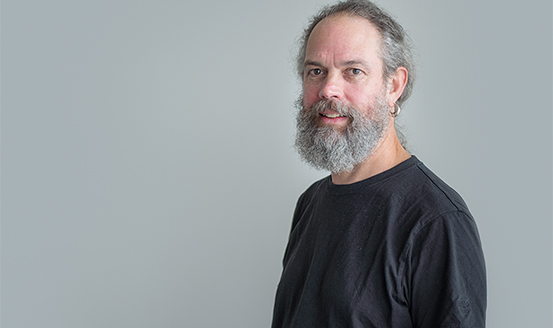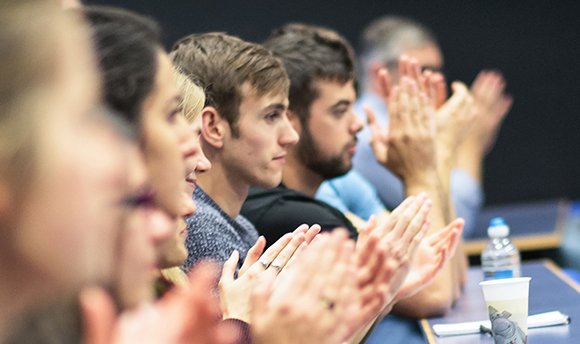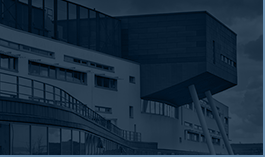This course is still open for entry in September 2024 – please visit our Clearing and Late Application page.
Public Sociology - BSc (Hons)
If you have an enquiring, questioning mind and you want to understand more about human societies, social problems, interactions and experiences, you will thrive on this BSc (Hons) Public Sociology course.
Intellectually stimulating and personally empowering, this course will invite you to embrace new ideas and schools of thought. It encourages rigorous critical thinking on complex and challenging social issues, opening the door to a wide range of careers.
It is Scotland’s first public sociology course and we continue to be pioneering in the way we think. Our students have chosen fascinating and original topics to research for their dissertations, from women’s body image on social media to a community campaign on gentrification.
The course is student-focused and research-informed. It offers students the opportunity to work closely with staff on current, real-world projects and collaborations.
Why QMU?
- Unique in Scotland: This was the first undergraduate public sociology degree in Scotland.
- Learn from academic staff who are actively involved in social justice: This will enable you to see first-hand how we can bring what we study to life.
- Stimulating learning environment: We offer a stimulating environment in which students can develop the intellectual and professional edge needed for working with 21st century society.
- Staff expertise: Our staff work on outward-facing, innovative and cross-disciplinary research.
- Support for students: Our class sizes are smaller compared with some universities, so you have closer and more personal support and guidance from our staff.
Public Sociology - BSc (Hons): The course in brief
On this course you will:
- engage with diverse communities and develop a sense of the ways in which a public sociological imagination can meaningfully intervene in real-world political and social events;
- ask, and be able to answer, critical questions such as ‘What is the nature of society and how can we change it for the better? What are the root causes of social injustice and inequality? How could we change society’s perception of them, and make the actual changes themselves?’;
- reflect upon the ways in which sociological knowledge can affect real change in people’s everyday lives;
- learn how to critique preconceptions about social equality and justice;
- learn how to make sense of complex and challenging social issues, and how to provoke change; and
- understand how the public sociologist and sociological knowledge can create radical approaches to solving social problems.
How will I be taught?
Structure
You can opt to study for an honours degree over four years or an ordinary degree over three years. You will complete a range of modules each year as outlined.
Teaching, learning and assessment
You will be taught in lectures, seminars and practical workshops. Outside these timetabled sessions you will be expected to continue learning through self-study. You will be assessed by essays and a variety of other ways including written reports, presentations and groupwork.
Exchange opportunities
In Year Two you have the opportunity (subject to availability) to study for one semester at a university overseas. Please visit the Exchanges and Study Abroad pages for more information.
Teaching staff, class sizes and timetables
You can read more about the teaching staff on this course at the bottom of this page. Please note that teaching staff is subject to change.
For more information, please also visit ‘How we teach and how you’ll learn’.
What will I learn each year?
Year One
You will:
- study a range of modules that will provide you with a thorough grounding in the key concepts, theories and schools of thought in sociology, as well as some modules in psychology;
- develop a sound understanding of the historical development and contemporary applications of sociological knowledge. Specifically, this will include how sociological knowledge can help us to make sense of the public issues and concerns which affect the communities within that we live, as well as understanding the philosophical debates that underpin sociological interpretations of the world around us; and
- focus on enhancing a wide range of transferable skills, paying particular attention to improving your interpersonal and presentation skills, effective reading and writing, analytical thinking and critical reflection, as well as a sustained focus on the development of your research skills.
Modules
- Introduction to Academia
- Introduction to Psychology
- Introduction to Psychology 2
- The Sociological Imagination – Classical & Contemporary Sociological Theories & Concepts
- The Sociological Imagination Part 2: Diversity and Inequality
- Foundations of Psychology; Core Concepts and Practices
Year Two
You will:
- continue to study a range of modules that will provide you with a thorough grounding in the key concepts, theories and schools of thought in sociology;
- continue to develop your in-depth understanding of a broad range of substantive debates within the discipline of sociology with a particular focus on engaging with public issues and groups;
- refine your knowledge of sociological theory, research design and implementation, social movements and global change, sociologies of gender and sexuality, sociologies of liberation, and social policy and politics; and
- have the opportunity (subject to availability) to study for one semester at a university overseas. For more information, see Exchanges and Study Abroad.
Modules
- Developmental and Social Psychology
- Exploring Research
- Material Culture: The Social Life of Things
- Current Debates in Sociology
- Education, Race and Ethnicity
- Engaged Sociology
Year Three
You will:
- continue to develop an indepth understanding of a broad range of substantive debates within the discipline of sociology with a particular focus on engaging with public issues and groups; and
- continue to refine your knowledge of sociological theory, research design and implementation, social movements and global change, sociologies of gender and sexuality, sociologies of liberation, and social policy and politics.
Modules
- Sociology of Knowledge & Science
- Understanding the Sociological Present
- Social Process and Social Movements
- Class, Poverty and Inequality: Social Policy Responses
- Research Skills
- Community Education and the Organic Intellectual
Year Four
You will:
- work closely with a member of academic staff to conduct your own independent research project in which you will be encouraged to bring together your knowledge of sociological theories and concepts, as well as refining your research skills; and
- you will develop an ability to understand the relationship between complex sociological theory, practical research and contemporary public issues and concerns.
Modules
- Dissertation (Public Sociology)
- Options may include: Inequality, Poverty and Social Policy in Comparative Perspective/Gender Justice and Violence: Feminist Approaches/Embedded Sustainability/Political Ecology: the Social Study of Environmental Justice/The Sociology of Scotland/Community-based Education/Queer Feminist Sociology in Action
NB The modules listed here are correct at time of posting (Feb 2023) but may differ slightly to those offered in 2024. Please check back here for any updates.
Career opportunities
You will change. You will grow. You will graduate with a wide range of knowledge, skills and aptitudes. You will have a richly developed sense of social responsibility and, hopefully, a burning desire to make a powerful, positive change to the world around you. Previous graduates are now shaking things up in social and community work, consumer and social research, public policy development, teaching, academia, marketing and human resource management.
Public Sociology - BSc (Hons): Entry requirements and application information
Entry requirements
Scottish Higher: Standard - BBCC, Minimum - BCCC
A Level: CCD
Irish Leaving Certificate: H3 H3 H3 H3
International Baccalaureate: 26 points
International: IELTS of 6.0 with no element lower than 5.5
Am I a Widening Access student?: We apply the minimum entry criteria to applicants who meet one or more contextual factor. To see if this would apply to you, please refer to the access and application page.
Required subjects: English required and Maths preferred at Nat 5/GCSE.
Mature/Access: We welcome applications from mature students with relevant qualifications and /or experience. Visit our College Leavers and Mature Students Advice page for more information.
Direct Entry:
Year Two
- HNC in a related subject with B in the graded unit
- Scottish Higher: BC at Advanced Higher in relevant subjects plus BB at Higher
- A Level: BBB in relevant subjects
Year Three
- HND in a related subject with CB in the graded units
For details of related HNC and HND courses, visit our College Leavers and Mature Students Advice page.
Disability/health conditions
If you have a disability, long-term physical or mental health condition, or learning disability, it should not stand in the way of your studying at QMU. However, if you are not sure whether your disability might be a barrier in your studies or in relation to the professional standards, please contact the disability service who will be able to have a conversation with you about reasonable adjustments and supports available to you.
Terms and Conditions
The delivery of this course is subject to the terms and conditions set out in our 2024/25 Entry Terms and Conditions (Undergraduate).
Associate student places
You can study this course as an associate student, completing the first year at Newbattle Abbey College or West Lothian College.
Read more about the Associate Student Scheme.
Awarding body
QMU
Become your best you: study at QMU
Course Overview
Blogs You Might Also Like...
Useful Links
Opportunities to meet us: open days and more
As well as open days, we offer campus tours and online events throughout the year to help you find out more about student life and studying at QMU.
Open days and other ways of meeting us: more information